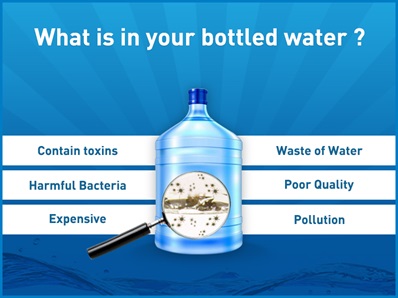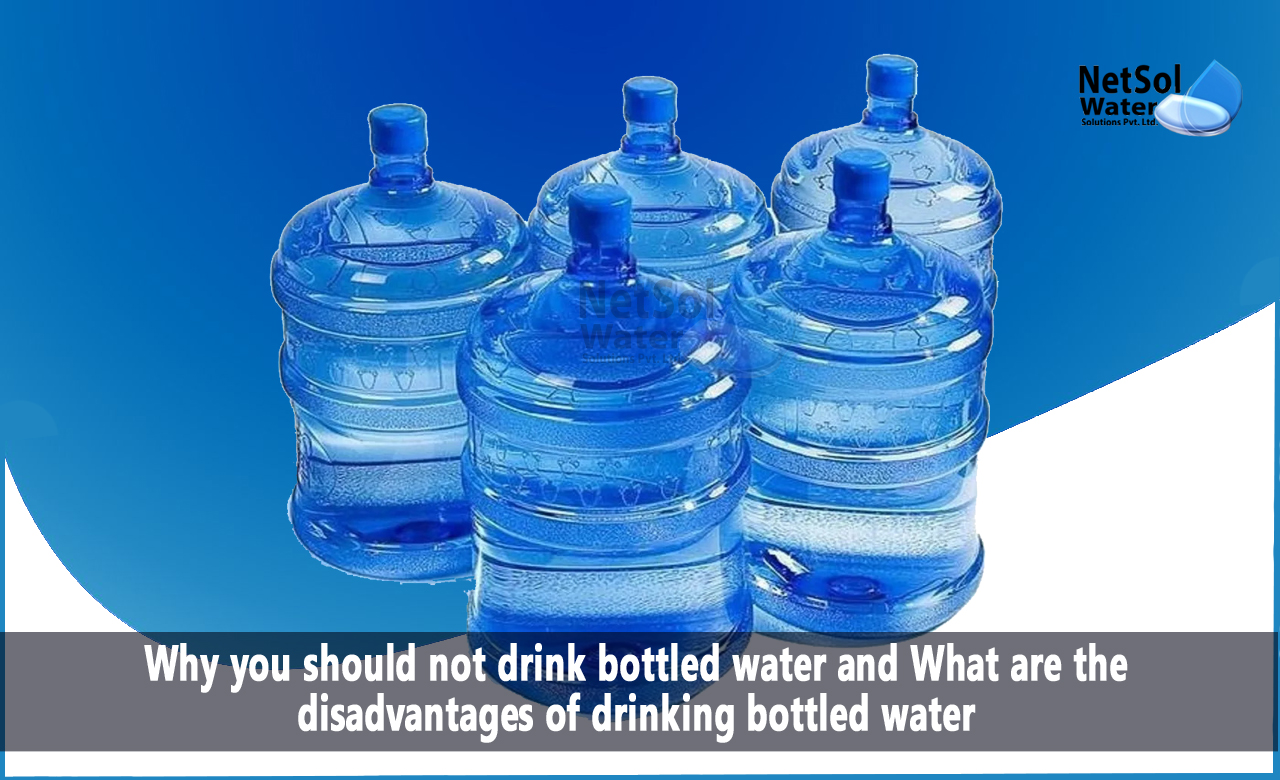Lately, the public has become aware of the harm that plastic water bottles pose to the environment. Despite, the fact that most people are aware of the damaging consequences that plastic water bottles have on environment, their use has not considerably declined.
Here is a description of some of the less well-known hazards related to drinking bottled water.
Why you should not drink bottled water and its disadvantages?
· Bottled water is possibly not even filtered
Although, bottled water is frequently portrayed as being of superior quality than tap water, in many cases it is just glorified tap water. Although, some producers filter their water further before bottling it, many do not and only charge for the packaging.
Recent investigations have discovered residues of phthalates, mildew, bacteria, arsenic, and thousands of other toxins in bottled water, despite the fact that it is subject to very little regulation.
· There is the presence of toxins from the plastic in bottled water
The main danger of drinking bottled water is the possibility of being exposed to toxic chemicals from the plastic. Despite the fact that water is alkaline, whenever you drink from a plastic bottle, you run the danger of consuming the toxins used to produce the bottle, since they can slowly seep into the water.
With older water bottles or those that have been heated, this is very typical. Once in your circulation, BPA and other plastic chemicals can lead to a variety of issues, including cancer and damage to the liver and kidneys.
· Bottled water consumption may impact fertility and development
Although, many businesses are opting to sell BPA-free plastic water bottles, this chemical is still frequently present in bottles made of Type-7 plastic. One of BPA's numerous issues is that it mimics estrogen, and when it leaches into water from plastic, it can result in a number of chromosomal abnormalities.
When children are exposed to BPA while still in the womb, this can result in difficulties later in life such as hyperactivity disorders, early beginning of puberty, and a higher risk for some cancers. Exposure to the oestrogen in BPA can also cause lower fertility in both men and women.
· Bottled water is linked to higher adult disease rates
Adult disease rates have also been linked to adult exposure to the chemicals in plastic water bottles. People who frequently consume bottled water, and in particular those who had high levels of BPA in their urine, have been found to have a threefold increased risk of cardiovascular disease, and a twofold increased risk of type 2 diabetes.
Even BHPF, a substance that is now frequently used in plastic bottles in place of BPA, has been discovered to have harmful side effects. Thus, it becomes more evident that the safest course of action is to avoid drinking bottled water whenever possible, even while the plastics industry works to develop to make plastic bottles "safer".

· Bottled water can also result in weight gain
The hormones in our bodies are discovered to be disturbed by both BPA and BHPF. Problems with weight management have been specifically linked, to how each of these substances affects oestrogen levels in both men and women. Plastic water bottle chemicals can affect where and how quickly fat is deposited in your body, which can lead to weight gain and make it more difficult to lose weight.
· Bottled water may contain microplastics
The potential of drinking bottled water exposing humans to microplastics may be the most alarming aspect, of bottled water that has recently come to light.
The most contentious use of microplastics is in many cosmetic items where they are included, to act as exfoliating scrubbers in hand cleaners and facial scrubs.
In addition to absorbing some of the chemical elements from the plastic container, recent research indicates that the plastic itself may be present in the water that people drink.
· Reusing plastic water bottles is also risky
Some people have started refilling single-use plastic water bottles many times, in an effort to lower their carbon footprint. Reusing a single-use water bottle may seem like a nice idea in theory, but it might actually be risky.
You run the danger of introducing more chemicals and microplastics into your drinking water, when you reuse these bottles. Reusing these bottles could be harmful to your health because of their form, which makes it practically impossible to clean them, and the soft plastic they are composed of, which serves as the perfect environment for the growth of bacteria.
Conclusion
80% of the marine garbage in the world is made of plastic. By 2050, if we don't take action, there might be more plastic in the oceans than fish. Therefore, we need to stop using plastic bottles right now, to save water, to save life!
High quality water treatment plants from Netsol
Clean water is produced by Netsol Water water treatment systems, which are designed, built, and installed with safety and the environment in mind. Our various water treatment plants can be constructed according to the needs of the customer, with water recycling options available.
We also encourage our clients to talk to us about the high-quality, pure water they need. Call us at +91 9650608473 or email at enquiry@netsolwater.com for further information.



